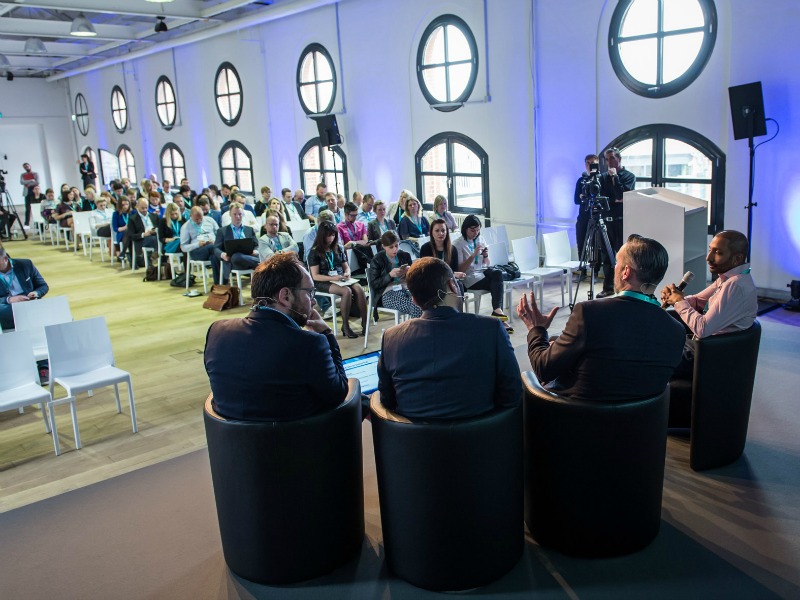Paul Holmes 25 May 2016 // 9:50AM GMT

BERLIN—Luxury marketing is changing as “we are moving from a world where having things was more important to a world in which people want to have experiences,” according to Nick Blunden, global managing director, The Economist Group, speaking on a panel on Luxury Brands in the Era of Disruption at the 2016 In2 Innovation Summit EMEA in Berlin this morning.
“It’s no longer enough that the product itself has be unique and exceptional,” said Blunden. “The whole experience, including customer services, has to be unique and exceptional. You have to be more open and give people the opportunity to experience the brand for themselves.”
The emphasis on experience has led to a blurring of the definition of luxury, added Sachar Klein, senior VP of communications at Glossybox. He recounted his experience ordering a pair of spectacles from a Dutch company: they were not particularly expensive, but they were delivered on time, with a personalized hand-written note (with his name spelled correctly. "They give me the feeling I am special. In that respect I consider them a luxury brand."
This has led to another challenge, as luxury marketers recognize that they no longer control all—or even most of—the messaging around their brands.
“Luxury brands are used to a top down approach to defining their own brand proposition,” said Klein. “But today it’s more about how people react to and interact with your brand. We work with influencers, with bloggers, with people who are very active in the social media space, and they are the ones who are defining the brand proposition.”
James Myers, group managing director at TVC Group, agreed. “Luxury brands are gradually letting go. There are a very core group of influencers for luxury brands. You have to treat those influencers like journalists. And what luxury brands struggle with is surrendering control to those influencers and letting them become the spokesperson for that brand.”
At the same time, Myers said, “as we move into a social and digital world, luxury brands have embraced storytelling. They have a huge amount of heritage and they are leveraging that, but they are also learning to let go of controlling that story, and allowing other influences to tell their stories for them.”
“It’s not just telling your own story,” added Klein. “It’s getting people to tell their stories.” That is particularly powerful on social media channels such as Instagram.
Those channels are particularly popular among younger luxury consumers—although they may create problems for more traditional luxury consumers. Blunder concedes that this is an issue marketers are wrestling with, but questions whether the more simplistic distinctions between the two groups are not particularly relevant. “There is something universal about storytelling,” he said.
“It’s no longer enough that the product itself has be unique and exceptional,” said Blunden. “The whole experience, including customer services, has to be unique and exceptional. You have to be more open and give people the opportunity to experience the brand for themselves.”
The emphasis on experience has led to a blurring of the definition of luxury, added Sachar Klein, senior VP of communications at Glossybox. He recounted his experience ordering a pair of spectacles from a Dutch company: they were not particularly expensive, but they were delivered on time, with a personalized hand-written note (with his name spelled correctly. "They give me the feeling I am special. In that respect I consider them a luxury brand."
This has led to another challenge, as luxury marketers recognize that they no longer control all—or even most of—the messaging around their brands.
“Luxury brands are used to a top down approach to defining their own brand proposition,” said Klein. “But today it’s more about how people react to and interact with your brand. We work with influencers, with bloggers, with people who are very active in the social media space, and they are the ones who are defining the brand proposition.”
James Myers, group managing director at TVC Group, agreed. “Luxury brands are gradually letting go. There are a very core group of influencers for luxury brands. You have to treat those influencers like journalists. And what luxury brands struggle with is surrendering control to those influencers and letting them become the spokesperson for that brand.”
At the same time, Myers said, “as we move into a social and digital world, luxury brands have embraced storytelling. They have a huge amount of heritage and they are leveraging that, but they are also learning to let go of controlling that story, and allowing other influences to tell their stories for them.”
“It’s not just telling your own story,” added Klein. “It’s getting people to tell their stories.” That is particularly powerful on social media channels such as Instagram.
Those channels are particularly popular among younger luxury consumers—although they may create problems for more traditional luxury consumers. Blunder concedes that this is an issue marketers are wrestling with, but questions whether the more simplistic distinctions between the two groups are not particularly relevant. “There is something universal about storytelling,” he said.


































.jpg)

















